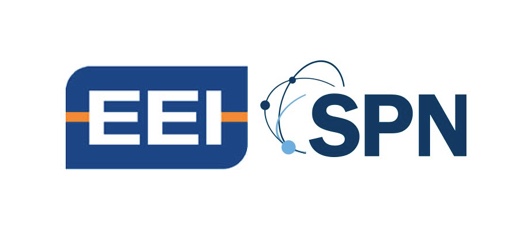A leaked audio recording offers a rare view into how the Edison Electric Institute, the trade association for investor-owned electric utilities, enlists third-party, state-based think tanks to help it attack rooftop solar power.
“Get involved” in advocating with Public Utility Commissions
The recording captures Todd Wynn, the Edison Electric Institute’s Director of External Affairs, pleading with the State Policy Network (SPN) at an 2016 event to “get involved” in advocating with Public Utility Commissions in support of policy changes that would kill rooftop solar growth and tax consumers.
UtilitySecrets.org obtained the audio recording, which captures Wynn speaking at the “Energy/Environment Leadership Summit,” on October 2, 2016 in Nashville, TN. The summit is an annual event organized by the Thomas Jefferson Institute for Public Policy that takes place alongside the SPN annual meeting. SPN is a web of right-wing, state-based think tanks around the country which claim to push for “market-oriented solutions” but whose agenda often reflects the interests of its donors, which includes utilities.
Listen to Wynn urge SPN groups to focus on these issues in public utility commissions:
Todd Wynn: So, State Policy Network, all the state-focused groups, sometimes we’re here and we’re talking about federal energy policy, which you guys should certainly have an impact on. It’s important to learn about and also important to focus on. This is one of those issues that’s happening in your state, every decision is at the state level, and may be in an area that you may have not engaged in the past with the public utility commissions, but I urge you to get involved in those. Public Utility Commissions, Service Commissions, Corporation Commissions, whatever they happened to be called in your state – there’s a lot of power there and they make some pretty significant decisions that right now, I don’t think a free-market think tank has engaged as deeply as the political Left, the environmental groups have.
Wynn again emphasized third-party help during the question and answer portion of the panel discussion:
Michael Whatley (Vice President of Consumer Energy Alliance): I want to start with the first question, which is to go to Todd. Todd, as you’re moving around the country and working with all the different states, and I counted 18 states that you guys are engaged in net metering cases before the regulatory commissions or state legislatures, what is it that the SPN network and the folks that are in this room can do to be helpful in a way like JMI and Caesar Rodney Institute have been in their states?
Todd Wynn: That’s great because ultimately we’re here to talk action and how you guys can kind of impact things. Ultimately, I see a really strong role of the state-based think tanks of changing public opinion and I know that’s what you all are really good at. So op-eds, letters to the editor, the works. And as it was mentioned earlier, it was great to hear earlier what Delaware is doing on this front, get involved in the public utility, public service, corporation commission. Show up and start making yourself be that point of contact for, I guess the kind of “adult in the room” is what was mentioned.
So I’d say keep putting out that public opinion, put that in the papers as much as possible, because ultimately when folks hear this they automatically take the solar side of things because they don’t know the details, and you guys are uniquely positioned to break down some of these complex topics into a more bite-sized chunk for the general public, and that can change the directions of these things.
Two of the policies on which Wynn explicitly asks for SPN chapters for their help are:
Fixed Charges
Increasing fixed charges means hiking the portion of a customer’s electricity bill that they pay no matter how much electricity they use. Fixed charges tend to increase bills for low energy users, and decrease bills for high energy users, making them highly regressive; they hit the poorest customers hardest. The charges make rooftop solar less valuable, which is why utilities who are antagonistic to rooftop solar are pursuing them around the country, led by EEI. Finally, fixed charges also reduce the value of energy efficiency, since they rob customers of a chance to reduce that large fixed portion of their bill by consuming less electricity.
So far, most public utility commissions have not bought the utilities’ flawed arguments. According to NC Clean Energy Technology Center’s 50 States of Solar Report 201s6 Review, “Forty-six utilities asked for residential fixed-charges increases of 10% last year.” The utilities were granted only partial or no increases in 79% of the cases, according to the report.
Net Metering
Retail net metering allows customers with solar panels to be compensated for any excess solar energy that they send back to the grid for the same rate that they buy the electricity. In many states, utilities are trying to curtail net metering payments or end them entirely. EEI has led the campaign for years.
Wynn centers his call to action around Nevada, explaining to the SPN crowd that in late 2015 the state’s PUC ruled to end net metering, and citing it as an example where the think tanks could make a difference:
“You could have gotten involved in this one pretty heavily and probably had a pretty significant impact on the outcome,” Wynn said.
Two months after Wynn spoke, in December, the Nevada PUC actually ruled to restore net metering for some customers and signaled that it was likely to do so statewide.
Wynn grounds his pitch on both fixed charges and net metering in EEI’s well-trod argument that rooftop solar customers create a “cost shift” because when they buy less electricity from the utility, they supposedly are not paying their fair share to maintain the grid.
The argument has been rebutted by a slew of studies, most recently one from the Lawrence Berkeley National Laboratory which found that “for the vast majority of states and utilities, the effects of distributed solar on retail electricity prices will likely remain negligible for the foreseeable future.” [emphasis added] Specifically, LBNL finds that distributed solar “likely entails no more than a 0.03 cent/kWh long-run increase in U.S. average retail electricity prices, and far smaller than that for most utilities.” Any cost shifts that could happen are minor compared to the effect on rates caused by utilities’ capital expenditures and over-reliance on gas, the study found.
Historically, utilities have not made their entreaties to SPN and its chapters empty-handed. EEI paid the State Policy Network $10,000 in 2014. Since most of EEI’s funding comes from electric customers, that means some portion of most Americans’ electric bills likely funded that donation.
In addition to Wynn and EEI’s entreaties to SPN, individual utilities have been shown to fund individual SPN think tanks and get anti-rooftop solar work in return. The James Madison Institute, SPN’s Florida think tank, has accepted funding from Gulf Power, one of Florida’s four large utilities and a major financier of Amendment 1, the failed anti-solar 2016 ballot amendment which attempted to deceive Florida voters. Gulf Power sponsored JMI events in 2013, 2015 and 2016. JMI in turn did work to support Amendment 1 – just the sort of activity Wynn is requesting other SPN groups emulate. JMI’s Sal Nuzzo also spoke at the TJI dinner.

If Wynn and EEI get their way, other SPN chapters will begin adding attacks on solar energy to their portfolios as well.
Listen to the full audio of Wynn and the other panelists at the conference:
